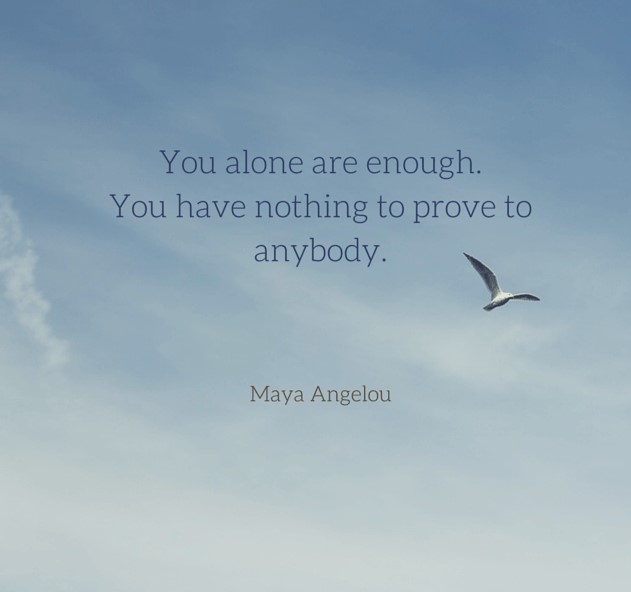
Self-regard along with Emotional self-awareness constitutes the solid foundation that is needed for durability and beauty of the rest of the emotional intelligence building. It is important to understand the essential role of the foundation in a building’s structure. If the foundation is not strong and durable, the finished building, no matter how beautiful and modern it is, will erode quickly and loose its apparent beauty soon enough. It will not be able to face extreme weather conditions, earth quakes or other natural disasters, it might even fall in shaky times. So, the point is that if self-regard and Emotional self-awareness are not strong, the rest of the emotional intelligence competencies and their inter-play will not make sense and one will not be able to build a durable, long-lasting emotional intelligence resource pool.
Self-regard is our ability to accept ourselves as we are, with a full awareness of our strengths and weaknesses. When we have a positive self-regard, we know that we have certain strengths and we know how & when to utilize them. At the same time, we are also fully aware of our weaknesses, the pitfalls that we can fall victims for and should be aware of. Imagine a situation where your friend or colleague ended up making a mistake. The very first and impulsive reaction (lack of Emotional self-awareness!!) of this person would be to find out; what went wrong AND immediately after that; who’s fault was it? Most likely, almost always, it is someone else’s fault! A person with a positive self-regard will not come to this conclusion by default. She/he is fully aware of her/his own strengths & weaknesses and is able to admit if they made a mistake. Most importantly, people with positive self-regard will not get stuck in the mistake but will rather gather the learning from it and move forward in life. It is because they do not blame themselves or others for the mistake/failure but rather see it as an opportunity to learn and grow.
A well-defined feeling of identity is anchored in the realization and awareness of what our strengths and weaknesses are. When we have an awareness of our strengths we feel strong and “enough” in ourselves. This saves us from doubting our abilities, especially in adversities, and help us build a strong confidence and self-efficacy. At the same time, having a realization that we are human, we do have weaknesses and it is OK, keeps us away from going towards a state of over-confidence. Essentially, self-regard provides us with the balanced amount of confidence so that we neither end up with inferiority complex, nor over-confidence.
Look around you; Do you find anyone suffering from lack of confidence or over-confidence? You can be sure that it is because they need to work with their self-regard! When I introduce this competency to people, I do it indirectly through goals and values that they have in life. And in the beginning, there are a lot of participants who, once again, feel surprised/confused because goals and values are usually not something that we walk around and think about in our daily routines, right? But after going through the activities discussions and reflection, I hear the acknowledgement that it was a really good experience to stop for a second in our busy lives and reflect on; What are our goals in life? How do they relate to our values? What is the relationship between our goals, values, strengths and weaknesses? In my workshops I help participants seek answers to these questions in a safe space as a humble guide and it is through this process that we kick off our journey of finding ourselves and how we feel about us!
